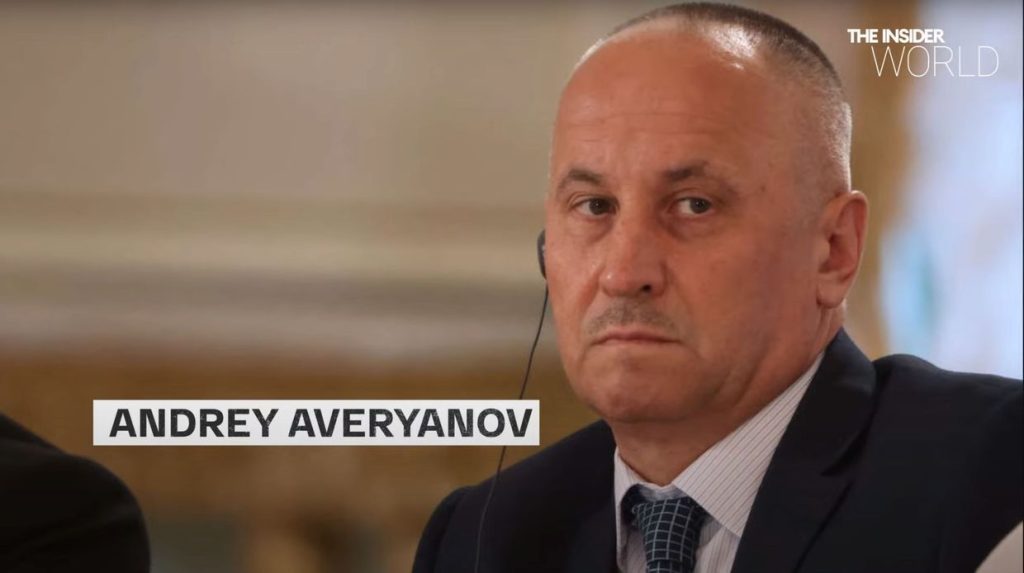A collaborative investigation by The Insider uncovered evidence linking the mysterious health condition known as the Havana Syndrome to members of Russia’s military intelligence agency, GRU Unit 29155. These attacks, carried out using directed energy weapons, have targeted overseas U.S. government personnel, resulting in severe and debilitating medical consequences. Victims of these attacks include American diplomats, spies, military officers, contractors, and even their family members. The report found that the first of these attacks actually took place in Frankfurt, Germany, in 2014. Symptoms of the attacks range from chronic headaches, vertigo, tinnitus, and insomnia to blindness or hearing loss, with many victims forced to medically retire from government service. The investigation was able to geolocate Russian operatives associated with Unit 29155 to locations around the world at the time of reported anomalous health incidents.
Senior members of Unit 29155 have received awards and promotions for their work in developing “non-lethal acoustic weapons,” which use sound and radiofrequency-based directed energy devices. The unit is focused on violent military operations and was not created for intelligence gathering. Many victims of these attacks had subject-matter expertise or operational experience in Georgia, Ukraine, or Russia. U.S. officials associated with the CIA’s work in these regions have experienced anomalous health incidents post-2014, particularly after the annexation of Crimea. The report raises concerns about the U.S. government’s response to these attacks, with American intelligence agencies being accused of downplaying the issue. Despite the passage of the Havana Act in 2021, victims feel betrayed by their government and question the motives behind not fully acknowledging the foreign adversary responsible for the attacks.
The investigation also uncovered Russian agents posing as activists, filmmakers, and journalists in an attempt to spy on domestic civil society organizations. These agents were reportedly associated with GRU Unit 29155, known for its involvement in the poisoning of Russian dissident Sergei Skripal and his daughter in 2011. Russian agents have used various cover identities to gather information and potentially advance their intelligence operations, raising concerns about the extent of their infiltrations. The report highlights the risks posed by these agents and their ability to manipulate and exploit civil society organizations for espionage purposes.
The link between the Havana Syndrome attacks and Russia’s military intelligence agency raises questions about Moscow’s strategic objectives and its targeting of U.S. government personnel with specialized expertise in regions of geopolitical interest. The report suggests that Russian President Vladimir Putin may be seeking to neutralize U.S. intelligence officials responsible for perceived threats to Russian influence in former Soviet territories. The disabling of American regional intelligence experts through directed energy attacks could potentially serve as a significant strategic victory for Russia in its efforts to counter U.S. influence and disrupt intelligence operations in sensitive regions. The report emphasizes the need for a more robust response from the U.S. government to address these attacks and hold accountable the foreign adversary responsible.
Victims of the Havana Syndrome attacks have faced significant challenges in receiving proper medical care and support from their government. The Office of the Director of National Intelligence issued a report stating it was “very unlikely” that a foreign adversary was responsible for the health incidents, leading victims to feel dismissed and neglected. The report suggests that the U.S. government may be hesitant to fully acknowledge the foreign involvement in these attacks due to concerns about escalating tensions or undermining recruitment efforts. However, there is a growing push for greater transparency and accountability in addressing the Havana Syndrome attacks, with victims advocating for justice and recognition of the harm caused by these directed energy weapons. The investigation underscores the need for a comprehensive response to protect U.S. government personnel from such targeted attacks and ensure their safety and well-being in the face of evolving security threats.


